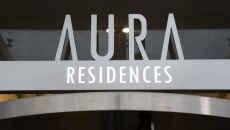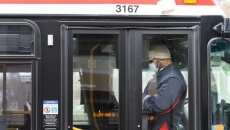WASHINGTON - A New York congressman wants to add some Zoom to the sluggish effort to clear a bilateral backlog of Nexus trusted-traveller applications.
Rep. Brian Higgins (D-N.Y.), a frequent champion of streamlined travel between Canada and the United States, introduced legislation on Capitol Hill that, if passed, would require the Department of Homeland Security to deploy video conferencing to replace in-person interviews.
Average processing time for NEXUS applications is currently 12-14 months.
— Brian Higgins (@RepBrianHiggins) January 30, 2023
Today we announced the "Make NEXUS Work Act."
Our bill would allow for NEXUS interviews to take place over video conferencing, reducing the backlog & easing cross-border travel.https://t.co/rmZEzILtEK pic.twitter.com/zZ6XArXcDP
The bill, dubbed the "Make Nexus Work Act," is just the latest response to a long-standing legal and jurisdictional glitch that prolonged the pandemic-driven closure of Nexus enrolment centres in Canada for nearly a year and brought the vetting process of applicants to a standstill.
"We've always looked at infrastructure, including technology, as a way to expedite the customs process at the border," Higgins said in an interview.
On the U.S. side, where enrolment centres have been open since April 2022, what had been a 16-month wait between making an application and receiving a Nexus card is now down to between 12 and 14 months, he added. The backlog of applicants has been reduced by more than 100,000.
"But we can certainly do better, and I think one of the ways you can do better is through the interview process taking place virtually."
Higgins also cited a pilot project U.S. Customs and Border Protection launched in 2021, with U.S. centres still closed by COVID-19, that allowed agents to meet virtually with existing trusted-traveller members, including Nexus card holders, in order to process renewals.
"It's pretty simple — it's not novel," he said of the two-page bill. "It's in place for the trusted-traveller program, so why wouldn't we expand it to include Nexus?"
A spokesperson for Customs and Border Protection refused comment Friday, saying the agency does not discuss proposed legislation.
The Nexus enrolment process, which originally included a single, jointly conducted interview with Canadian and U.S. border officials, ground to a halt when the pandemic hit in March 2020. But while U.S. centres reopened last spring, CBP refused to send agents to staff the Canadian locations.
That's because the agency wanted U.S. officers to have access to the same legal powers and protections they enjoy at land entry points and in Canadian airport preclearance centres, a request the federal government in Ottawa considered a bridge too far.
The two sides have since found a pair of workarounds, although both require applicants to submit to two separate interviews.
Air travellers with plans to fly to the U.S. from specific Canadian airports that offer customs preclearance can undergo their second interview with CBP officers in the preclearance hall, provided they have already met with Canadian customs officials and are preparing to board a U.S.-bound flight.
For land travellers, two specific ports of entry — the Thousand Islands bridge crossing near Kingston, Ont., and the Peace Bridge between Fort Erie, Ont., and Buffalo, N.Y. — are allowing applicants to meet with Canadian officials on one side, then cross over to meet with U.S. officials on the other.
Both CBP and Canada's Customs and Border Services Agency say they are exploring plans to extend that system to other land crossings elsewhere along the border. The U.S. also has a new enrolment centre planned for Ogdensburg, N.Y., a border town due south of Ottawa.
Public Safety Minister Marco Mendicino, who announced the new scheme three weeks ago during the North American Leaders' Summit in Mexico City, billed it as enhancing the system's ability to process Nexus applications by as much as 50 per cent.
But he assiduously avoided discussing whether the patchwork, two-step process would prove more cumbersome than a single interview with officials from both countries at the same time.
"It is important not to gloss over the fact that sovereignty is something that goes right to the core of how we enforce our laws," Mendicino said in Mexico, pegging the backlog in Canada at between 220,000 and 240,000 applications.
"This is a significant step. It's a significant step precisely because it augments the capacity to respond to the increased demand, which actually expedites travel."
Videoconferencing would be even more effective, said Higgins, noting that while Canadian travellers spent upwards of $20 billion in the U.S. in 2019, the industry doesn't expect to see travel return to those pre-pandemic levels until at least 2025.
"When people don't have Nexus passes, they're in that big line of people who invariably are delayed significantly, and that discourages people from making that cross-border trip," he said.
"A lot of the cross-border trips that occurred pre-pandemic may not return in whatever phase it is we're in now, because people have adjusted their economic behaviour to avoid the bridge because of all kinds of problems."






